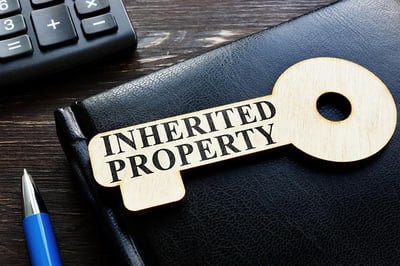Are Airports Eligible for New Market Tax Credits (NMTC)?

The New Market Tax Credit (NMTC) was created in 2000 to encourage investment in low-income, economically distressed areas by allowing federal income tax credits for investments in Community Development Entities (CDEs). The NMTC was initiated by PL 106-554 (the Community Renewal Tax Relief Act of 2000) and has distributed credits worth $26 billion through 2020.
Can a Partner of an LLC Defer Capital Gains Taxes on QOZs?

Much of what is written about the Opportunity Zone program involves investors with capital gains from the sale of capital assets. Those gains can be invested in Qualified Opportunity Funds (QOFs) which, in turn, place those resources into one of 8,000 Qualified Opportunity Zones (QOZs). The investors can then benefit from deferred taxes on those capital gains.
Where Do I Put My REIT Income on a Tax Return?

Real estate investment trusts are one way investors can own interests in commercial real estate without having to navigate the common management and operational issues that are associated with direct property ownership.
Who Are the Parties to a Delayed 1031 Exchange?

On the surface, the 26 U.S. (IRC) Code § 1031 is pretty basic. Operating under the title of “Exchange of Real Property Held for Productive Use or Investment,” the 1031 exchange allows you to exchange currently held real property into designated replacement property, or properties. A successful like-kind exchange means you can defer capital gains taxes.
What Is a Living Trust?

Estate planning is one of the most responsible things that you can do to make sure that your loved ones are taken care of after your passing. One of the most effective tools that can be a part of your estate plan is a living trust. Understanding what a living trust is and how to properly utilize one can ensure that your estate plan meets your own expectations and the needs of your beneficiaries.
How Are REITs Taxed?

Real Estate Investment Trusts, or REITs, can offer investors many of the potential benefits associated with real estate investments without the common pitfalls of direct property ownership.
What Is a Step-Up in Basis?

Basis plays an important role in real estate. Typically, it’s the all-in cost of an asset, including sales tax and capital expenses incurred during acquisition such as appraisals, attorney charges, sales commissions, loan and document fees, mortgage insurance premiums, inspections, and other common closing costs.
Do Bonds Help Manage the Overall Risk of an Investment Portfolio?

Excessive risk is equated with excessive returns. But not everyone has an interest in high-risk, high-return portfolios. For investors who want to manage risk in their portfolio, are bonds the answer? A financial advisor will likely say yes, but why? Let’s dig into the details.
What Is a REIT?

To some investors, one of the most appealing aspects of investing in real estate is the opportunity to earn truly passive income. While some people want to be actively engaged in their investment properties, others covet the potential to have their properties generate a passive form of income. However, it’s important to note that there are multiple types of passive real estate investments. Understanding what those options are and which one is right for you can help ensure that you’re making the appropriate choice with your money. One such example of a passive real estate investment tool is a REIT.
What Is A Tax-Free Savings Account And How Does It Work?

Canadians looking to build their wealth for the future have many options. One of these is a tax-free savings account, or TFSA. Not only does this function as a savings account, but it also can serve as an investment vehicle. Here’s what you need to know about Canadian tax-free savings accounts before you open one.


